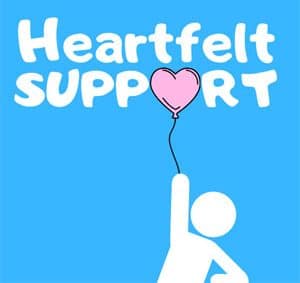The history of music therapy is as rich and varied as the practice of music itself, with its therapeutic applications dating back to ancient times. This form of therapy has evolved significantly over the centuries, but it has always been centered on the profound impact that music can have on the human psyche and body. It wasn’t until the aftermath of the World Wars that music therapy began to emerge as a formalized profession, providing relief and rehabilitation to veterans through musical intervention, which then led to treatment of other medical conditions and success as a tool for those with physical and intellectual disability..
Clinical Music Therapy
Music therapy is the evidence-based use of music interventions to address individualized goals within a therapeutic relationship. This clinical and evidence-based practice involves a range of music-related activities, including creating, singing, moving to, and listening to music, all facilitated by a credentialed professional who has completed an approved music therapy program.
The Tangible Benefits of Music Therapy
Mental Health Improvements Through Music Therapy
Clinical evidence supports the use of music therapy in the treatment of mental health issues. A study in the Journal of Music Therapy highlights its effectiveness in reducing symptoms of depression, showcasing music therapy’s capacity to foster emotional well-being.
Stress and Anxiety Reduction via Therapeutic Music Interventions
The anxiolytic (anxiety-reducing) properties of music are well-documented, with research published in Psychosomatic Medicine demonstrating music’s ability to lower stress levels in patients undergoing medical procedures.
Cognitive Benefits of Music in Healthcare
Music therapy has been shown to improve cognitive function, particularly in older adults with cognitive impairments. A study published in the International Journal of Alzheimer’s Disease reports that music therapy can benefit individuals with Alzheimer’s disease, enhancing cognitive performance and quality of life.
Pain Management and Music Therapy
The application of music therapy in pain management has gained significant attention. This Journal of Pallative Care article examines evidence of music’s role in reducing chronic pain, indicating the physical benefits of this therapeutic approach.
Enhancing Social Communication with Music Therapy
Music therapy has proven particularly beneficial in improving social communication among children with autism, as detailed in a study in Autism Research and Treatment. This underscores the social benefits of music therapy, facilitating better interaction and communication.
Rehabilitation and Recovery with Music Therapy
Music therapy has been effectively used in stroke rehabilitation, aiding patients in regaining speech and motor skills, according to the International Journal of Stroke. This illustrates the role of music therapy in physical rehabilitation and recovery.
The Role of Group Sessions in Music Therapy
Group music therapy has been found to be effective for psychiatric patients, fostering community and shared healing, as reported by the Nordic Journal of Music Therapy. These sessions create a sense of belonging and collective support, crucial for mental health recovery.
The Future of Music Therapy
The field of music therapy is expanding into neurologic music therapy, with promising research on its impact on brain injury rehabilitation. The integration of technology in music therapy opens new possibilities for treatment delivery and efficacy, signaling a bright future for this therapeutic discipline.
——————————————
Music therapy is a serious and effective form of treatment that can address a wide range of physical, emotional, and cognitive challenges. As research continues to evolve, the scope and impact of music therapy as a therapeutic discipline are likely to grow, offering new hope and healing avenues to those in need. This comprehensive guide underscores the transformative power of music therapy and its established place in healthcare and as a therapy for those with a disability.
We know it works – if you are interested in “why”, this article seeks to answer that.
Heartfelt Support offer music therapy via a fully-qualified musical therapist. You can find out more or apply.

